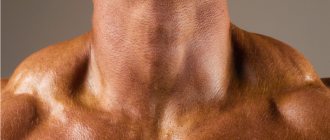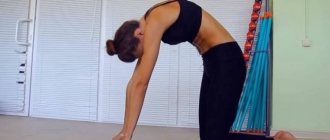Today we will talk about a healthy lifestyle (HLS). Every person in his life has heard words about a healthy lifestyle, that it helps to live up to 100 years and look young and well-groomed. But why then do we neglect this and do not try to fulfill the basic elements of a healthy lifestyle? Maybe because we don't know what it is. But if you look into this issue, then there is nothing impossible for a person.
What is a healthy lifestyle and its components.
A healthy lifestyle is a lifestyle that is aimed at preventing diseases and strengthening the human body with the help of simple components - proper nutrition, exercise, giving up bad habits and being calm and not causing nervous shock.
Changes in the environment, work that causes stress, and news that constantly broadcasts about the bad political situation and military operations in different countries make a person think about a healthy lifestyle. All this worsens health. But all this can be solved if you remember such points as:
- It is necessary to cultivate the habit of leading a healthy lifestyle from early childhood;
- know that the environment does not always benefit the human body;
- remember that cigarettes, alcohol and drugs cause irreparable damage to human health;
- proper nutrition improves health, reduces the risk of cardiovascular diseases, improves the condition of skin, hair and nails, and also promotes better digestion;
- playing sports makes you feel energetic throughout your life;
- emotional, psychological and spiritual well-being.
We will look at how each element of a healthy lifestyle affects a person and what needs to be done for this.
To understand more about why to lead a healthy lifestyle, it is worth understanding what a person who does not do this looks like.
Benefits of healthy lifestyle
A healthy lifestyle has a significant impact on immunity.
According to a survey of those who recently changed their lifestyle, after starting a healthy lifestyle, their well-being, mood, and worldview changed noticeably. In addition, striving to live a healthier life leads to the following improvements:
- The frequency of relapses of chronic diseases is reduced;
- When you wake up, there is no fatigue, you feel a surge of strength;
- Increased endurance during sports training is observed;
- The frequency of colds is reduced and their severity is reduced;
- The skin becomes firmer and cleaner.
In addition, research shows that this lifestyle can reduce the likelihood of developing a number of age-related diseases. In addition, this is an excellent example for loved ones, and, first of all, for children.
Daily regimen healthy lifestyle
At this point, the daily schedule and strict adherence to it are not exactly what is important for health. Being organized is good, but what is most important for human health is the circadian rhythm. More precisely, this is the “sleep-wake” mode. For the full restoration of all organs and systems of the body, sleep at night is very important.
A healthy body must get enough sleep 8-9 hours in advance, otherwise a person experiences weakness during the day, has difficulty waking up, feels irritable, and cannot sleep at night. The hormone melatonin, which is produced in the human body, is responsible for sleep and a normal state of wakefulness: at 2:00 am there is a peak in the production of the hormone; during the daytime it drops to “no”.
Therefore, for normal life and body functions, it is important to fall asleep no later than 23.00, and wake up at 7.00; these hours have a beneficial effect on the circadian rhythm.
Without sleep and rest it is impossible to achieve good health. In addition, melatonin slows down premature aging, helps normalize the functions of the endocrine and immune systems, participates in the digestion process and has an antioxidant effect.
Fundamentals and methods of creating a healthy lifestyle
A healthy lifestyle has 7 main “pillars”: physical activity, a balanced diet, the absence of bad habits, hygienic care, adequate sleep and rest, wellness treatments and an emotional state.
If you take care of all these aspects, your quality of life and well-being will improve significantly. Maintaining proper nutrition
The health of internal organs, appearance, well-being and immunity directly depend on what we eat. A healthy lifestyle involves eliminating, or at least reducing, flavorings, flavor enhancers, fatty foods, dyes and preservatives.
Here are the basic rules:
- You should neither starve nor overeat - both have a negative impact on your well-being. You should not feel hungry and, conversely, overeat. Try to ensure that your daily calorie intake is 1700-1900 kcal (the norm for women leading a sedentary lifestyle; for men the daily calorie intake is approximately 300-400 kcal higher).
- Drink clean water. It is advisable to drink 1.5 to 2 liters of water per day (not tea, coffee, juice, etc.)
- Reduce the amount of sweets in your diet. If you want something sweet, give preference to fresh vegetables and dried fruits. You can also consume dark chocolate in moderation.
- Eat small meals at least 4-5 times a day. At the end of the meal, you should still feel slightly hungry.
- The daily menu should contain meat or fish, vegetables and fruits, cereals, and dairy products. Eat a varied diet.
- It is advisable to have dinner at least 2 hours before bedtime. It is not advisable to eat immediately before bed.
- Eliminate fast food, fatty and smoked foods from your diet.
- Give preference to boiling, stewing or baking foods.
If you haven't watched your diet before, it may be difficult for you to suddenly change your diet.
Try to start small - remove fatty sauces and foods that contain them from your diet, avoid flavor enhancers and chemical additives in food, give up fast food products, convenience foods, confectionery, increase the share of fruits and vegetables in the menu. Completing each of these points will be a step towards a healthy diet. Physical activity
Lack of physical activity leads to a decrease in metabolic rate, the development of diseases of the musculoskeletal system, cardiovascular and neurological pathologies.
If your job does not involve movement, try to increase your activity yourself. It is considered normal to spend at least 1 hour a day in motion (this is about 8000-10000 steps). Scientists have proven that every minute of activity affects the body's condition in the long term - this means that even climbing the stairs, rather than taking the elevator, already brings you closer to health.
You can increase your daily activity by making it a habit to start and end your day with a light workout.
If you go to work by public transport, get off 1-2 stops earlier and walk this way. It is very useful to take breaks if you have a sedentary job. On weekends, do some fitness, go for a walk or go to the pool. These measures are quite enough to maintain health and well-being. Hygienic care
Personal hygiene is one of the components of a healthy lifestyle. First of all, this concerns the oral cavity. You need to brush your teeth at least twice a day, and pay attention to the entire oral cavity. In addition to the standard set consisting of a toothbrush and toothpaste, get a irrigator, dental floss and mouth rinse. Failure to comply with these rules is fraught not only with the development of caries, but also with the threat of periodontitis and gastrointestinal diseases.
It is also important to keep the house in order: regularly carry out wet cleaning, prevent dust accumulation, and ventilate the rooms daily.
Maintaining a daily routine
Scientists have concluded that sleep duration and regularity are important for health and well-being.
Every person should sleep at least 7 hours a day. At the same time, it is advisable to fall asleep and wake up at the same time. Of course, sometimes exceptions can be made, for example on weekends. Emotional mood
Nervous tension, constant breakdowns, stress - all this negatively affects mood, well-being and health in general. Experts recommend adhering to the following tips:
- Don't worry about what you can't change. If you cannot cope with anxiety, seek help from a psychologist.
- Think positively, find positive aspects in any situation.
- Don’t hold a grudge, let go of all grudges, don’t envy and don’t do harm to people.
- Try to avoid stressful situations.
Healthy lifestyle – what is hidden in this concept?
Let's leave radical veganism and the diets of professional athletes to their followers. A healthy person is physically active, mobile, free of harmful addictions and happy with life . And the lifestyle we are talking about is a style of alternating daily activities, rest, nutrition and special thinking that accompanies health.
Healthy lifestyle is:
- Activity. WHO recommends 30 minutes of light aerobic activity every day.
- Balanced diet. The amount of nutrients (proteins, fats, carbohydrates) must correspond to the needs of the body. The program is drawn up by a doctor if a person is sick.
- Psychohygiene. The skill of managing emotions, relaxing and getting rid of negativity that provokes neuroses.
- Alternating loads and rest. This applies to training, work, responsibilities, and family.
- Prevention of diseases. We are talking about banal hygiene rules, vaccinations, and creating healthy working conditions.
In relation to a person, a healthy lifestyle can be briefly described by the following concepts: “diet”, “training and physical activity plan”, “work and rest regime”. Boring and difficult? Not really. Healthy food is quite ordinary tasty food, not necessarily gluten and sugar free, and physical activity is not always 12 laps of CrossFit followed by a 10 km run. This could be a walk with the dog or child, dancing, or even just walking to work.
The regime of work and rest is the most painful issue for compatriots. We are either paid too little, and we are forced to rush to a second job instead of relaxing, or we simply “live” at one, or we are engaged in a business that takes all our energy.
How lifestyle affects health and life expectancy
It is generally accepted that a habit is formed within 21 days.
By following the above rules, you can form a habit that will help you prolong your life and slow down the aging process. It is very important to follow the basics of a healthy lifestyle in a comprehensive manner. That is, if you take care of personal hygiene, exercise and eat right, but also smoke, a bad habit can slow down positive changes. The habit of living healthy
If you follow a healthy lifestyle, try to do everything possible to pass on a healthy habit to your children. Teach your child to do the right things from an early age.
- Enroll your child in a sports section from an early age.
- Go out into nature at least once a week.
- Sometimes give up public transport and the car, walk more.
- Visit your doctor regularly for preventive examinations of your body.
- Try not to introduce your child to fast food, sweets and products containing chemicals.
- From childhood, teach your child the rules of personal hygiene.
- Involve your child in house cleaning.
A healthy lifestyle should not cause discomfort; all actions should be a joy. Instill good habits gradually. First, get used to the new food, then start doing exercises in the morning, etc. Over time, you will begin to feel better and calmer, and you will be able to achieve goals that previously seemed unattainable.
Joints and ligaments during sports
Exercising in the morning is a great start to the day. 20-30 minutes of simple exercises will strengthen the ligaments and improve their mobility. You need to take care of your musculoskeletal system now, so that in old age you do not encounter diseases of the joints and ligaments. Just remember to give your body a rest so as not to overload it.
Conclusion
To summarize, it can be noted that physical education for a student is one of the important components of his everyday life. It is in this direction that students’ attitudes towards physical education, sports and a healthy lifestyle should be formed. Physical education is not only one of the fundamental components in student life, but is also the basis for the formation of comprehensive development and improvement of the individual. Physical education and sports while studying at a higher educational institution helps the student in the right direction to assess his own abilities and further develop them, thereby strengthening his own health. In general, there are a large number of problems that are associated with the attitude of students towards physical education. These include the period of assessing one’s own capabilities or lack of motivation to play sports. It is with the aim of solving these and other problems that physical education is taught in an educational institution.
Physical Culture
It is important to note that physical education contributes to the study of personal value orientation. When a student clearly knows about personal ideals, this helps him ensure the process of professional self-development and personal improvement.
When young people unite into organizations, clubs, teams and unions, then at this moment the formation of an integrative-organizational function takes place. It provides an opportunity to learn and further develop existing skills of cooperation and teamwork. Such teamwork makes it possible to identify each person’s existing personal, creative potential. It is the basis for the comprehensive development of the individual. In addition, collective work helps to develop the communicative-regulatory function, the essence of which is to reflect the process of communication, interaction and behavior of participants in physical education and sports activities.
In general, physical education is the main component of the process of organizing students' leisure time. It acts in such a way that it not only satisfies their natural personal needs, but also helps in relieving psychological and emotional stress. In order to reduce the incidence of illness among students and at the same time improve their health, it is necessary, first of all, to expand the promotion of a healthy lifestyle. This includes improving sports and health activities, and organizing active recreation. In this work, the first place belongs to physical education and sports.









